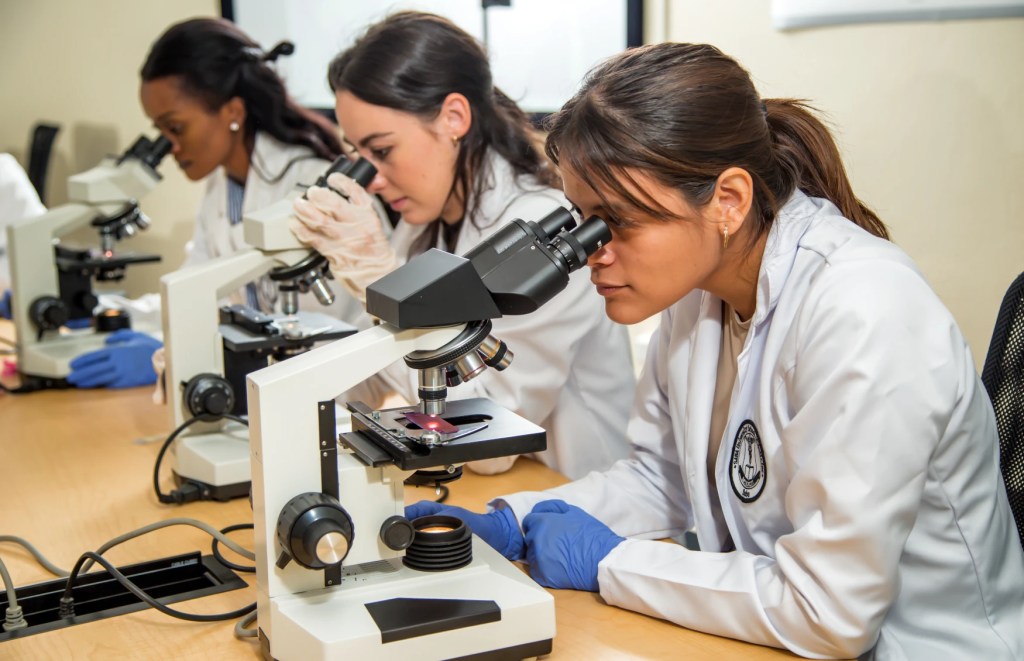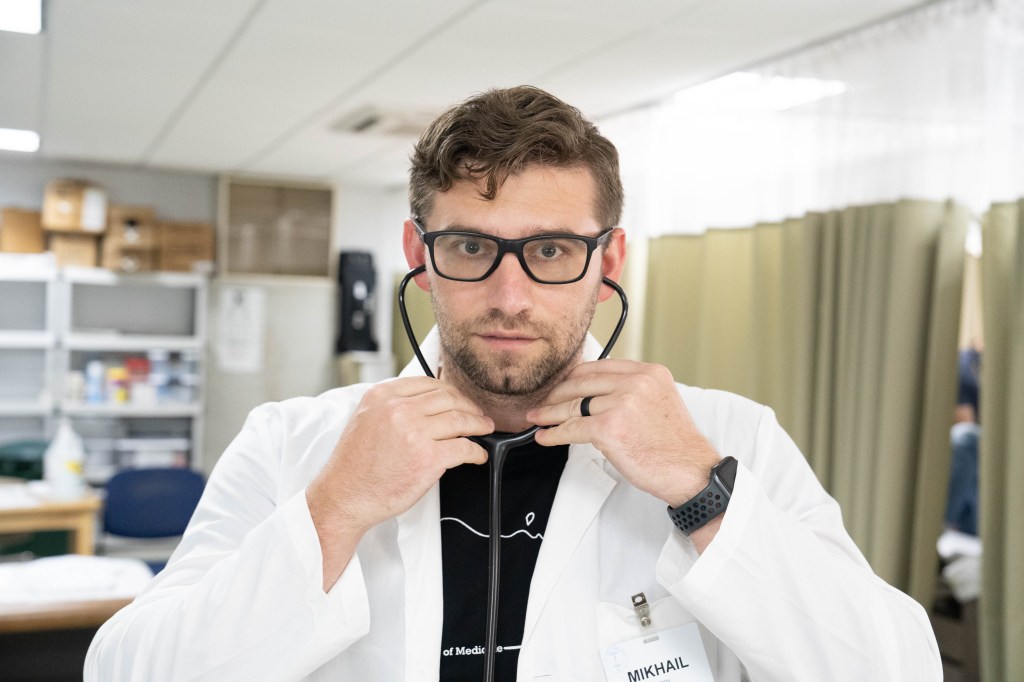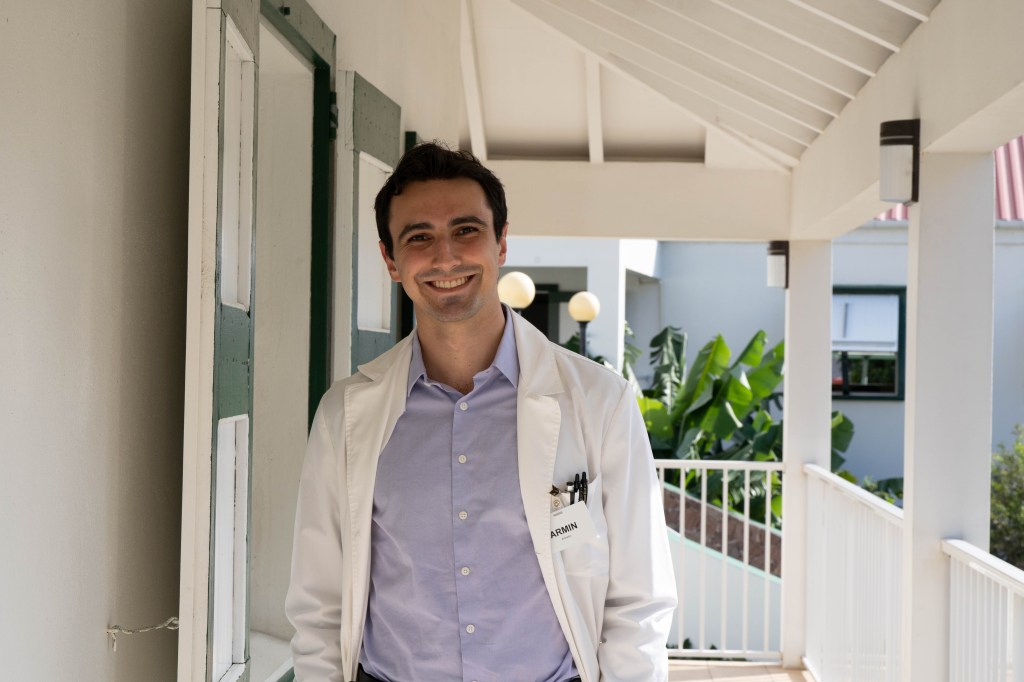
How to Get Into Medical School
Embarking on the journey to becoming a doctor is both exciting and challenging. For many aspiring physicians, the dream of practicing medicine begins with a single, daunting question: “How do I get into medical school?”. While the path to starting medical school may seem overwhelming, it’s entirely achievable with the right planning, dedication and guidance. In this blog post, we’ll break down the key steps to applying to medical school, helping you navigate this life-changing process.
Whether you’re just beginning your undergraduate studies or are well into your pre-med journey, this guide will offer practical advice on how to get into med school, including building a strong academic foundation, excelling on the MCAT, gaining relevant experience and crafting an outstanding application. Let’s dive in.
Building a Strong Academic Foundation
Before you can apply to medical school, it’s important to build a solid academic foundation that demonstrates both your intellectual ability and dedication to the field of medicine. From selecting a major to mastering the science courses that will be pivotal in your future studies, having a clear academic strategy is essential.
Choosing the Right Major (It’s Not What You Think!)
Contrary to popular belief, you don’t need to major in biology or another science field to get into medical school. While having a science background is certainly helpful, you can get into medical school without a traditional major. In fact, choosing a major you’re passionate about can help you excel academically while showing medical schools you are a well-rounded candidate. Whether it’s humanities or engineering, medical schools look for students who can think critically, communicate effectively and demonstrate a passion for lifelong learning. However, it is also essential that you complete the prerequisite courses for medical school, such as biology, chemistry and physics.
Excelling in Your Science Courses (GPA Matters!)
Although your choice of major is flexible, your performance in core science courses like biology, chemistry and physics is crucial. Medical schools pay close attention to your GPA, particularly in these areas. A strong science GPA not only demonstrates your academic abilities but also proves that you can handle the rigorous coursework in medical school. Aim for excellence in every class, as a high GPA can make all the difference in a competitive admissions process. Remember, every grade counts, so focus on maintaining consistent academic excellence throughout your undergraduate studies.
Preparing for the MCAT
The MCAT (Medical College Admission Test) is another key hurdle for aspiring medical students. This standardized exam is used by nearly all medical schools in the U.S. and Canada to assess your knowledge in areas like biology, chemistry, psychology and critical thinking.
Cracking the Code: What to Know About the MCAT
The MCAT is a 7.5-hour exam designed to evaluate your readiness for the challenges of medical school. It covers four sections: Biological and Biochemical Foundations of Living Systems, Chemical and Physical Foundations of Biological Systems, Psychological, Social, and Biological Foundations of Behavior, and Critical Analysis and Reasoning Skills (CARS).
The exam isn’t just about memorizing facts, but also applying that knowledge to solve complex problems. Most students take the MCAT after completing their pre-med courses, ensuring they have a solid foundation in the topics tested. Preparing for the MCAT is not something to take lightly; it requires months of focused study.
Effective Strategies for MCAT Success
Achieving a competitive score on the MCAT takes time, effort and a well-planned study schedule. Many students begin studying several months in advance, dedicating 20 to 40 hours per week to preparation. Consider joining a study group, using online resources or enrolling in an MCAT prep course to stay on track.
Some effective strategies include:
- Setting a study schedule that breaks down your preparation into manageable tasks.
- Taking full-length practice exams to simulate the test day experience.
- Focusing on your weak areas by reviewing content and using targeted practice questions.
Remember, a high MCAT score can significantly boost your chances of getting into medical school, so invest the necessary time to prepare.
Gaining Practical Experience
In addition to strong academics, medical schools look for applicants with hands-on experience in healthcare settings. This not only strengthens your application but also confirms your commitment to the profession.
Shadowing doctors, volunteering at clinics, and working in healthcare environments will give you a first-hand look at what being a doctor entails. This experience helps you develop practical skills and a deep understanding of patient care.
Not only that, but this practical experience can help you prepare for medical residency opportunities once you finish your studies, equipping you with the skills to navigate the challenges of both studying and working in real-world healthcare settings.

Beyond the Numbers: Developing Well-Rounded Skills
Medical school admissions are about more than just your GPA and MCAT score. While your academic credentials are important, schools are looking for well-rounded candidates who can demonstrate leadership, communication and empathy. Participating in extracurricular activities, such as joining student organizations, conducting research or engaging in community service, will show that you have developed the personal qualities necessary to thrive as a physician.
You’ll continue to develop these skills once you start medical school too. At Saba, producing compassionate, well-rounded doctors means helping students develop leadership, teamwork and problem-solving abilities as part of their medical school experience.
Crafting a Compelling Application
When it comes time to apply to medical school, crafting a compelling application is critical. Admissions committees are looking for applicants who can communicate their motivations, experiences and personal qualities effectively. Medical schools receive thousands of applications each year, so it’s crucial to present yourself in the best light.
Your application is your chance to showcase your strengths and convince admissions committees that you’re a perfect fit for their program. Your personal statement should highlight your journey to medicine, including any challenges you’ve overcome, the experiences that shaped your decision to pursue this career and why you’re passionate about helping others. Additionally, letters of recommendation from professors, mentors or medical professionals who know you well can provide valuable support.
Interviewing with Confidence
Once you’ve submitted your application, the next step is the interview. The medical school interview is your opportunity to demonstrate your communication skills, confidence and passion for becoming a doctor. Practice common interview questions with a friend or mentor, and make sure to prepare thoughtful questions about the school to show your genuine interest.
Remember to stay calm, listen carefully to each question and answer thoughtfully. Interviewers want to see that you can engage in a meaningful conversation about your goals and experiences. Confidence is key, but humility and self-awareness will also make a lasting impression.

Visit our YouTube channel to deepen your enthusiasm for your medical journey ahead. Witness the SUSOM Class of 2024 at our commencement ceremony as they walk across the stage: Watch here:
Conclusion
Getting into medical school is no easy feat, but with the right preparation, mindset and determination, you can achieve your goal of becoming a doctor. By focusing on academic excellence, gaining relevant experience and presenting a well-rounded application, you’ll be well on your way to getting into medical school.
Ready to take the next step? Learn more about Saba University’s MD Program or the Pre-Med/Master’s Program and start your journey today.
FAQs
Getting into medical school is competitive, with only about 40% of applicants gaining admission each year. However, by meeting academic and experiential requirements, you can increase your chances of acceptance.
The requirements to get into medical school include a strong GPA, a good MCAT score, relevant healthcare experience and a compelling personal statement. You’ll also need letters of recommendation and to perform well in interviews.
Most medical schools look for a GPA of at least 3.5. However, the specific GPA requirements vary by school and some schools may consider applicants with lower GPAs if they excel in other areas.
You’ll need at least a bachelor’s degree, though the specific major is flexible as long as you complete the required science courses such as biology, chemistry and physics.

For prospective students
Saba is committed to supporting prospective students with throughout the application process. Please see the following links for detailed information about each topic: